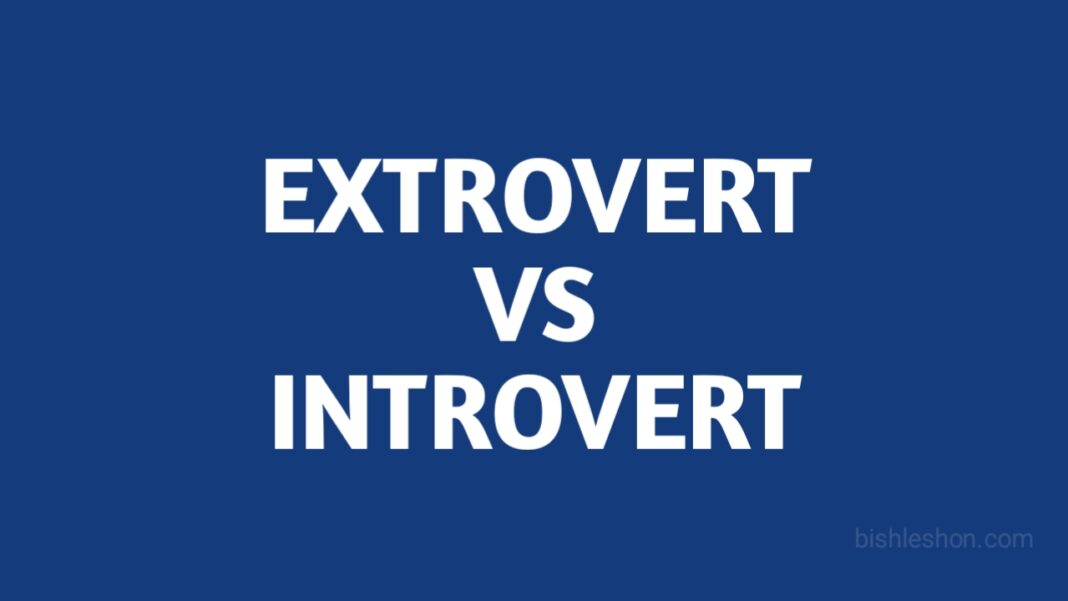The terms extrovert and introvert are often used to describe personality traits that affect how people interact with others. An extrovert is someone who tends to be outgoing, social, and energized by social interactions, while an introvert is someone who is more reserved, introspective, and recharges their energy from spending time alone. Understanding the differences between these two personality types can be crucial for effective communication, particularly in the workplace or social settings.
Defining Extroverts and Introverts
Extroverts and introverts differ in how they derive their energy and how they process information. Extroverts are typically outgoing, social, and energized by social interactions. They often enjoy being the center of attention and are comfortable in group settings. On the other hand, introverts are more reserved and introspective, preferring to spend time alone or in small groups. They may find large social gatherings draining and need to recharge their energy by withdrawing from social interactions.
Differences in Communication Styles
The communication styles of extroverts and introverts also differ significantly. Extroverts tend to be more assertive and expressive, using language and body language to convey their ideas and emotions. They often enjoy talking and prefer to process their thoughts by discussing them with others. On the other hand, introverts are more reflective and thoughtful in their communication, often preferring to listen and observe before expressing their own ideas. They may find group discussions overwhelming and prefer to communicate one-on-one or in smaller groups.
The Impact of Personality Type on Social and Professional Relationships
An individual’s personality type can significantly impact their social and professional relationships. Extroverts are often seen as outgoing and charismatic, which can help them form new connections quickly. They tend to thrive in social settings, where their energy and enthusiasm can be contagious. However, they may also be perceived as dominating or attention-seeking, which can cause friction in relationships.
Introverts, on the other hand, may take longer to form connections but may have deeper, more meaningful relationships. They tend to be better listeners and observers, which can make them great problem-solvers and empathetic friends. However, their reserved nature can sometimes be mistaken for aloofness or disinterest, which can make it challenging to form new connections.
Advantages and Disadvantages of Being an Extrovert or Introvert
Both extroverts and introverts have their own unique advantages and disadvantages. Extroverts tend to be outgoing, confident, and assertive, which can make them great leaders and public speakers. However, they may struggle with introspection and self-reflection, and their energy can sometimes come across as overwhelming or aggressive. On the other hand, introverts tend to be reflective, empathetic, and creative, which can make them great listeners and problem-solvers. However, they may struggle with assertiveness and may find it challenging to advocate for themselves in social or professional settings.
Finding a Balance: Tips for Effective Communication
Regardless of whether you identify as an extrovert or introvert, effective communication often requires finding a balance between the two personality types. Some tips for effective communication include:
- Understanding your communication style and how it may be perceived by others
- Practicing active listening and being open to other perspectives
- Finding a balance between speaking up and listening to others
- Taking breaks to recharge and reflect when necessary
- Being mindful of nonverbal communication, such as body language and tone of voice, and how it can affect your message
In addition, it’s important to recognize and appreciate the strengths of both extroverts and introverts. For example, a team that includes both personality types can benefit from the extrovert’s ability to energize and motivate the team, as well as the introvert’s ability to reflect and provide thoughtful insights.
References
- Cain, S. (2013). Quiet: The Power of Introverts in a World That Can’t Stop Talking. Crown Publishers.
- Grant, A. (2013). Give and Take: A Revolutionary Approach to Success. Penguin Books.
- Grant, A., & Gino, F. (2020). The problem with forcing positive thinking. Harvard Business Review.
- Myers, I. B., McCaulley, M. H., Quenk, N. L., & Hammer, A. L. (1998). MBTI manual: A guide to the development and use of the Myers-Briggs Type Indicator. CPP, Inc.
- van Knippenberg, D., & van Kleef, G. A. (2016). Leadership and affect: Moving the hearts and minds of followers. Academy of Management Annals, 10(1), 799-840.



 For all latest articles, follow on Google News
For all latest articles, follow on Google News